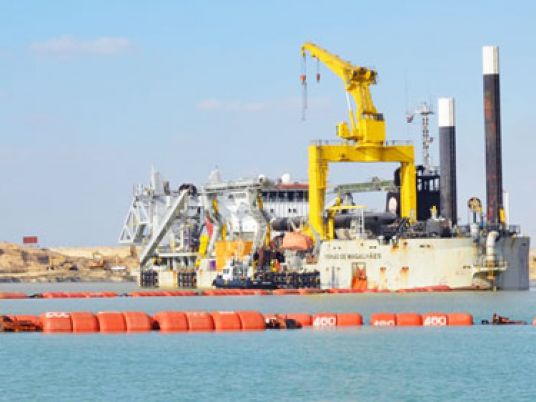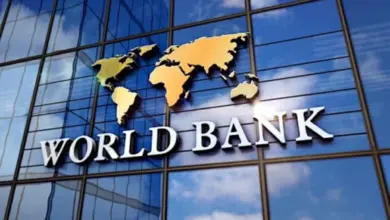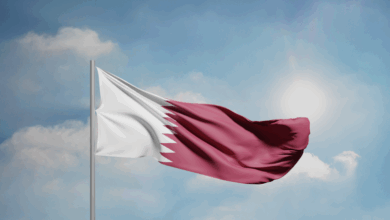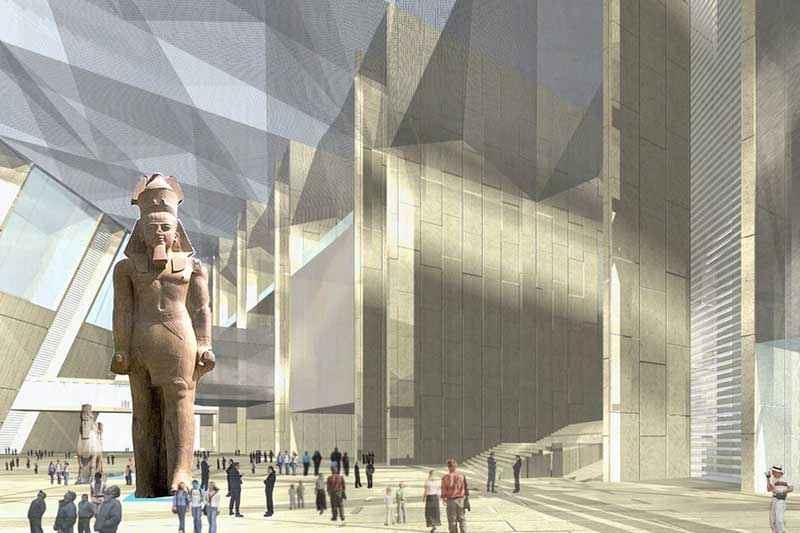
Egypt has been pumping up the hype for months for its international conference opening Friday, aimed at drawing investors from around the world. Television channels show a countdown clock to the start alongside heroic footage of factories and captains of industry. Ads for the gathering are blasted to passengers on incoming flights of the national airline EgyptAir.
President Abdel-Fattah al-Sisi has staked his legitimacy on fixing Egypt's broken economy, and it cannot be done without massive new investment. The conference is his government's centerpiece for showing that Egypt is ready for the world's business after four years of turmoil, starting with the 2011 uprising that ousted autocrat Hosni Mubarak, followed by constant unrest and capped in 2013 by the military's ouster — led by then-army chief Sisi — of an elected but divisive Islamist president.
The question is whether the show can be translated into reality. The answer will be a measure of international confidence not only in Egypt's economic potential but its political stability, given a persistent Islamic militant insurgency and the government's fierce crackdown on Islamist opponents, which has killed hundreds, landed tens of thousands in prison and brought heavy criticism.
Though the government will likely proclaim some major new contracts during the conference, the deciding factor will be whether the event plants the seeds for more investment down the road.
"It's difficult to say how much new money we might see coming out of it," said Simon Kitchen, a strategist at Egyptian bank EFG-Hermes. "While the conference has a timetable for investment, often deal-making doesn't work that way."
The three-day conference opens under heavy security in Egypt's Red Sea resort of Sharm el-Sheikh. Some 1,700 international investors, executives, government officials, financiers and experts are expected to attend. Among them are 25 heads of state — mostly from the Gulf and Africa — US Secretary of State John Kerry and the head of the International Monetary Fund, Christine Lagarde.
Since the event's announcement a year ago, officials have steadily scaled back expectations. It was originally touted as a panacea that would rope in up to US$100 billion. Later, after slick admen were hired to manage the message, the figure was lowered to $15 billion, then $10 billion. Then officials started to say numbers mattered less than the key point that the country was on the right track, serious about reform and slashing its notorious red tape.
The official position now is that Egypt will offer up around 50 streamlined projects worth a total of $35 billion for investors to consider.
The government has yet to produce a new investment law it had promised as a cornerstone of the summit. A draft was agreed only days beforehand and will likely be modified, so investors at the conference will not have a definitive document on which to base possible business decisions.
With the law drawn up in a rush and already facing objections from various government ministries, the concern is that "it's really not as efficient as the private sector would have liked," said Angus Blair, chairman of Signet, which does risk consultancy for foreign investors.
Also, bombings blamed on Islamic militants, which usually target security forces, have turned in recent weeks to attack foreign and local businesses, apparently trying to undermine the conference.
At least seven have been killed so far in March in bombings, which have hit near a branch of the French supermarket chain Carrefour in Alexandria, outside an Emirates-owned bank in the Nile Delta and near Egypt's highest appeals court in broad daylight in downtown Cairo. "The risk factor is definitely rising," said Blair, though he said so far investors still see Egypt's profit potential as greater than the risk.
What's clear is how much Egypt needs rescue. The economy has been gutted by the instability since 2011. Foreign investment dried up — from a high of $13 billion in 2007-2008, it plunged to $2.2 billion after the uprising. Tourists, one of the country's main sources of revenue, fled. Growth rates fell from more than 7 percent before the uprising to around 2 percent.
Those numbers have begun to inch back up. The International Monetary Fund projects 3.8 percent growth for the fiscal year ending 30 June, and 4.3 percent in 2015/2016. Foreign direct investment came in at $4 billion last year, and Investment Minister Ashraf Salman says it will double to $8 billion in this fiscal year.
Still, Egypt's total foreign and local investment — less than 14 percent of GDP — is "among the lowest in the emerging world," said Jason Tuvey of Capital Economics.
"It leads to poor quality of infrastructure and hinders rises in productivity and thus living standards," Tuvey said, adding that ideally it should be around 25 percent. Egypt's GDP in 2013 was some $270 billion.
Authorities have already made some important moves to please investors — scaling back fuel subsidies, moving to deregulate the energy sector and allowing the Egyptian pound to devalue somewhat against the dollar. The state also paid back a few billion dollars owed to energy companies. British Petroleum subsequently announced it would develop natural gas resources out of the Nile Delta to the tune of some $12 billion. The project, equivalent to a quarter of Egypt's current supply, will help alleviate power shortages that lead to rolling blackouts affecting tens of millions of people.
In the end, much may depend on the desire and wherewithal of Gulf Arab states to continue to back Egypt. They have already given Sisi's government more than $20 billion. Now they are encouraging companies close to their governments to dive in. Saudi Arabia originally called for the conference, and the United Arab Emirates, which is helping to organize it, has lined up investors.
But with oil prices at half of what they were last year, Gulf countries have less largesse to throw around.
"The decisive factor will be whether Egypt's Gulf allies and partners are willing to commit themselves to supporting the political path" taken by Sisi since the 2013 military ouster," said Amr Adly, a nonresident scholar at the Carnegie Middle East Center, in an analysis last week.




